-
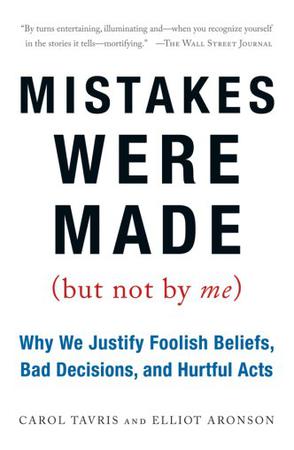
Mistakes Were Made
Why do people dodge responsibility when things fall apart? Why the parade of public figures unable to own up when they make mistakes? Why the endless marital quarrels over who is right? Why can we see hypocrisy in others but not in ourselves? Are we all liars? Or do we really believe the stories we tell? Renowned social psychologists Carol Tavris and Elliot Aronson take a compelling look into how the brain is wired for self-justification. When we make mistakes, we must calm the cognitive dissonance that jars our feelings of self-worth. And so we create fictions that absolve us of responsibility, restoring our belief that we are smart, moral, and right - a belief that often keeps us on a course that is dumb, immoral, and wrong. Backed by years of research and delivered in lively, energetic prose, "Mistakes Were Made (But Not by Me)" offers a fascinating explanation of self-deception - how it works, the harm it can cause, and how we can overcome it. -
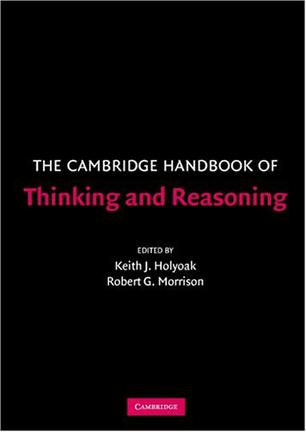
The Cambridge Handbook of Thinking and Reasoning
Written by foremost authorities from cognitive psychology, cognitive science, and cognitive neuroscience, the chapters of this reference summarize basic concepts and facts of a major topic, sketch its history, and analyze the progress its research is currently making. The volume also includes work related to developmental, social and clinical psychology, philosophy, economics, artificial intelligence, linguistics, education, law, and medicine. The Cambridge Handbook of Thinking and Reasoning comprises the first comprehensive and authoritative handbook for all core topics within the fields of thinking and reasoning. -
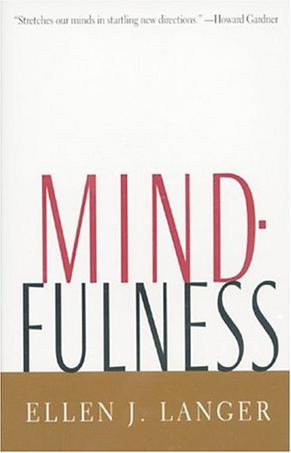
Mindfulness
From Publishers Weekly The mindless following of routine and other automatic behaviors lead to much error, pain and a predetermined course of life, contends Langer, Harvard professor of psychology, in this thought-provoking study in which she "translates" for lay readers the findings of her research, much of it among the elderly. With anecdotes and metaphors, she explains how the mindless--as opposed to the mindful--develop mindsets of categories, associations, habits of thought born of repetition in childhood and throughout schooling. To be mindful, she notes, stressing process over outcome, allows free rein to intuition and creativity, and opens us to new information and perspectives. Langer discusses the negative impact of mindsets on business and social relations, showing special concern for the elderly, who often suffer from learned helplessness and lack of options. Encouraging the application of mindfulness to health, the author affirms that placebos and alternative, mind-based therapies can help patients and addicts move from unhealthy to healthy contexts. First serial to Health magazine; QPBC, Library of Science, Behavioral Science, Natural Science and Psychotherapy and Social Science Book Clubs selections. Copyright 1989 Reed Business Information, Inc. --This text refers to an out of print or unavailable edition of this title. Product Description "A landmark work of social psychology" (Booklist) now in paperback at a popular price. " . . . Harvard psychology professor Langer seeks to dramatize the rigid conditions and mindsets that often produce a pervasive state of automatized stupidity . . . (and) proposes a life-enhancing alternative."--Kirkus Reviews. -
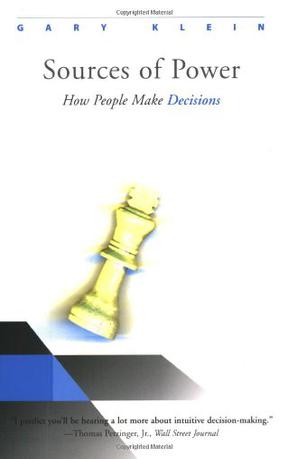
Sources of Power
Anyone who watches the television news has seen images of firefighters rescuing people from burning buildings and paramedics treating bombing victims. How do these individuals make the split-second decisions that save lives? Most studies of decision making, based on artificial tasks assigned in laboratory settings, view people as biased and unskilled. Gary Klein is one of the developers of the naturalistic decision making approach, which views people as inherently skilled and experienced. It documents human strengths and capabilities that so far have been downplayed or ignored.Since 1985, Klein has conducted fieldwork to find out how people tackle challenges in difficult, nonroutine situations. Sources of Power is based on observations of humans acting under such real-life constraints as time pressure, high stakes, personal responsibility, and shifting conditions. The professionals studied include firefighters, critical care nurses, pilots, nuclear power plant operators, battle planners, and chess masters. Each chapter builds on key incidents and examples to make the description of the methodology and phenomena more vivid. In addition to providing information that can be used by professionals in management, psychology, engineering, and other fields, the book presents an overview of the research approach of naturalistic decision making and expands our knowledge of the strengths people bring to difficult tasks. -
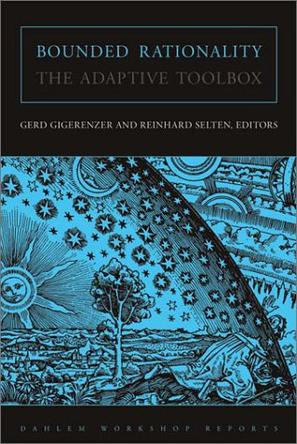
Bounded Rationality
In a complex and uncertain world, humans and animals make decisions under the constraints of limited knowledge, resources, and time. Yet models of rational decision making in economics, cognitive science, biology, and other fields largely ignore these real constraints and instead assume agents with perfect information and unlimited time. About forty years ago, Herbert Simon challenged this view with his notion of "bounded rationality." Today, bounded rationality has become a fashionable term used for disparate views of reasoning. This book promotes bounded rationality as the key to understanding how real people make decisions. Using the concept of an "adaptive toolbox," a repertoire of fast and frugal rules for decision making under uncertainty, it attempts to impose more order and coherence on the idea of bounded rationality. The contributors view bounded rationality neither as optimization under constraints nor as the study of people?s reasoning fallacies. The strategies in the adaptive toolbox dispense with optimization and, for the most part, with calculations of probabilities and utilities. The book extends the concept of bounded rationality from cognitive tools to emotions; it analyzes social norms, imitation, and other cultural tools as rational strategies; and it shows how smart heuristics can exploit the structure of environments. -
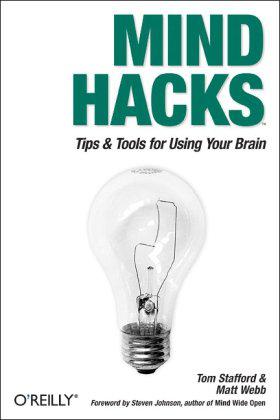
Mind Hacks
This exploration into the moment-by-moment works of the brain uses cognitive neuroscience to present experiments, tricks, and tips related to vision, motor skills, attention, cognition, subliminal perception. Each "hack" examines specific operations of the brain. By seeing how the brain responds, you'll learn more about how the brain is put together. If you want to find out what's going on in your head, then Mind Hacks is the key.